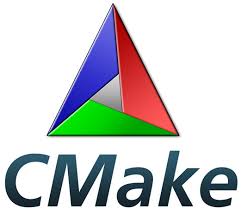How To Install CMake on Ubuntu 22.04 LTS

In this tutorial, we will show you how to install CMake on Ubuntu 22.04 LTS. For those of you who didn’t know, CMake is an open-source, cross-platform family of tools designed to build, test, and package software. CMake is popular due to its cross-platform so that developers using the build system work the way they’re used to. The suite of CMake tools was created by Kitware in response to the need for a powerful, cross-platform build environment for open-source projects such as ITK and VTK.
This article assumes you have at least basic knowledge of Linux, know how to use the shell, and most importantly, you host your site on your own VPS. The installation is quite simple and assumes you are running in the root account, if not you may need to add ‘sudo‘ to the commands to get root privileges. I will show you the step-by-step installation of the CMake on Ubuntu 22.04 (Jammy Jellyfish). You can follow the same instructions for Ubuntu 20.04, 18.04, and any other Debian-based distribution like Linux Mint.
Prerequisites
- A server running one of the following operating systems: Ubuntu 22.04, 20.04, 18.04, and any other Debian-based distribution like Linux Mint.
- It’s recommended that you use a fresh OS install to prevent any potential issues.
- SSH access to the server (or just open Terminal if you’re on a desktop).
- A
non-root sudo useror access to theroot user. We recommend acting as anon-root sudo user, however, as you can harm your system if you’re not careful when acting as the root.
Install CMake on Ubuntu 22.04 LTS Jammy Jellyfish
Step 1. Update Your System.
First, make sure that all your system packages are up-to-date by running the following apt commands in the terminal.
sudo apt update sudo apt upgrade sudo apt install build-essential checkinstall zlib1g-dev libssl-dev
Step 2. Installing CMake on Ubuntu 22.04.
- Method 1: Installing CMake from Source
By default, the CMake is not available on Ubuntu 22.04 base repository. Now run the following command below to download the latest stable version of CMake to your Ubuntu system:
wget https://github.com/Kitware/CMake/releases/download/v3.30.2/cmake-3.30.2.tar.gz
Extract the archive contents using the following command:
tar -zxvf cmake-3.30.2.tar.gz
Next, switch to your CMake directory and use the following commands to install CMake:
cd cmake-3.30.2 ./bootstrap make sudo make install
Confirm the installation and check the installed build version of CMake:
cmake --version
- Method 2: Installing CMake via Snap Package.
Snap is a universal package management system developed by Canonical, the company behind Ubuntu. It offers a convenient way to install and manage software across different Linux distributions. Snap packages are self-contained, including all dependencies, which ensures consistency across systems.
To install CMake using Snap, follow these simple steps:
sudo snap install cmake --classic
Wait for the installation to complete. Snap will download and install CMake along with its dependencies.
Verify the installation by checking the CMake version:
cmake --version
Step 3. Troubleshooting and Common Issues
If you encounter any issues during the installation process, here are some troubleshooting tips:
- Make sure your system is up to date by running
sudo apt updatebefore attempting to install CMake. - Double-check that you have installed the necessary prerequisites mentioned in Section II.
- If you encounter errors while building CMake from the source, ensure that you have all the required development libraries installed. Check the CMake documentation or the official website for any additional dependencies.
-
If you still face issues, consider searching online forums, developer communities, or the CMake mailing list for assistance. Often, other users have encountered similar problems and can provide guidance.
Congratulations! You have successfully installed CMake. Thanks for using this tutorial for installing the CMake on Ubuntu 22.04 LTS Jammy Jellyfish system. For additional help or useful information, we recommend you check the official CMake website.